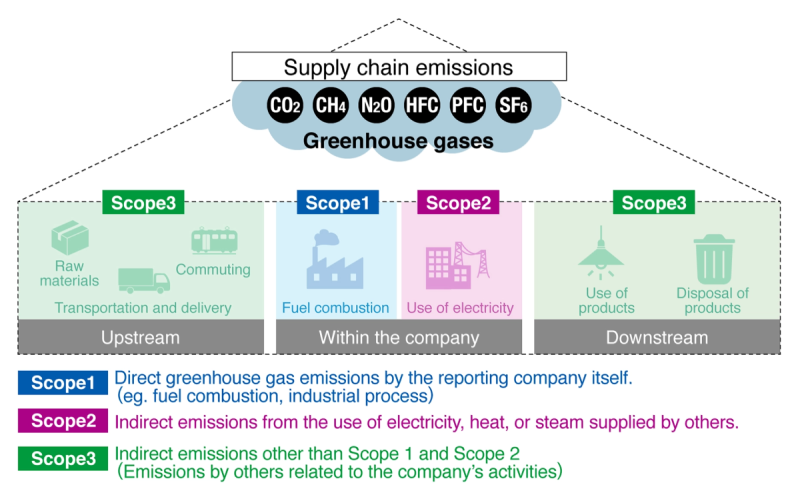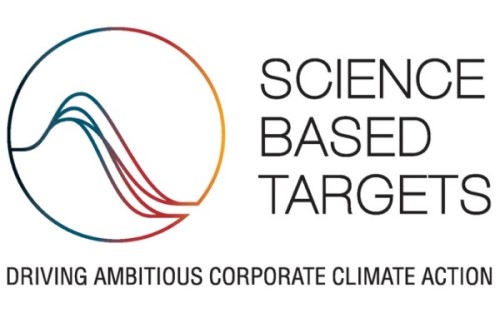Sustainability
Environmental Vision 2050
Environmental Vision 2050
Fuji Electric is committed to achieving a sustainable society through its energy and environment businesses. In 2019, we formulated our Environmental Vision 2050 in order to clarify our policy with regard to the long-term environmental initiatives we intend to carry out going forward. In March 2022, we revised both the Environmental Vision 2050 and Fiscal 2030 Goals in light of societal trends focused on the achievement of a decarbonized society.
In June 2024, in light of societal trends aimed at transitioning toward a circular economy, we updated our message and fiscal 2030 goals pertaining to our vision to “Achieve a Recycling-Oriented Society.”
Fiscal 2030 Goals
[Decarbonized Society] We aim to achieve the following goals in order to limit the temperature increase to 1.5°C above pre-industrial levels.
-
Greenhouse gas emissions throughout the supply chain (Scope 1+2+3):
Reduction of over 46% (compared to FY2019)
-
Greenhouse gas emissions through production (Scope 1+2):
Reduction of over 46% (compared to FY2019)
-
Contribution to CO2 reduction in a society through our products:
Over 59 million tons/year
[Recycling and Harmony with Nature] We will promote a circular economy while complying with environmental regulations around the world.
-
Transitioning to environmentally friendly products that comply with ecological design regulations
-
Final waste disposal rate (including plastic waste):
Less than 0.5%
Achieve a Decarbonized Society
Scope of our initiatives
The scope of our efforts to reduce greenhouse gas emissions is as shown in the below.

Validation by the SBTi
In December, 2022, our Scope1,2 and Scope3(1-8,11) targets have been approved as 1.5˚C targets by the SBTi (Science Based Targets initiative).*2.

-
*2
-
SBTi is the International Climate Change Initiative that was co-founded by UNGC (United Nations Global Compact), CDP (Carbon Disclosure Project as a former name), WRI (World Resources Institute) and WWF (World Wide Fund for Nature). It is an organization that assesses and certifies whether the greenhouse gas emission reduction targets established by companies and organizations in each country are “targets based on the science knowledge ” .
Key Initiatives
Reduce greenhouse gas emissions (Scope 1+2+3) throughout the supply chain
・ Improve energy-use efficiency in energy saving products
Reduce greenhouse gas emissions during production (Scope 1+2)
-
Promote energy savings in facilities
-
Increase the share of renewable energy
-
1.
Introduce solar power generation at our operating bases
-
2.
Purchase renewable energy
-
Contribute more to CO2 reduction in a society through our product
・ Promote the use of clean energy and energy-saving products
Achieve a Recycling-Oriented Society
In recent years, many have questioned the necessity for a “recycling economy,” a business model in which resources are used in recyclable manner. In light of current trends, Fuji Electric aims to manufacture products that do not impose environmental burdens throughout their life cycles. In June 2024, we updated our message and fiscal 2030 goals pertaining to our aim to “Achieve a Recycling-Oriented Society,” which is a facet of our Environmental Vision 2050.
In the past, our focus has been on reducing the amount of final waste in production activities and curbing water intake. Going forward, we will build on our existing activities by working to transition to environmentally friendly products, including by reviewing the designs of the products we ourselves produce. Ultimately, we strive to “Achieve a Recycling-Oriented Society” and "Achieve a Society that is in Harmony with Nature" by aiming for zero environmental impact throughout our product life cycles.
Key Initiatives
Transitioning to environmentally friendly products that comply with ecological design regulations
-
Formulate criteria to evaluate environmentally friendly products that are compliant with ecological design regulations and promote the switch to products that satisfy these criteria.
-
Work to calculate our carbon footprint with our business partners together
Final waste disposal rate (including plastic waste) of less than 0.5%
-
Continue to improve waste sorting at our overseas factories and establish relationships with waste disposal contractors
-
Aim to reduce plastic waste and promote plastic recycling
Achieve a Society that is in Harmony with Nature
Key Initiatives
Reduce environmental impact of business activities and products
・ Reduce chemical substances that contribute to environmental deterioration during production
・ Prevent the inclusion of substances restricted in their use in our products by implementing the Green Procurement Guidelines
